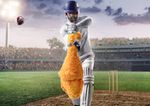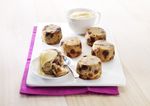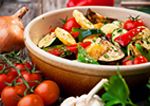How much sugar is actually in your drink?
by Anne Finch, Accredited Practising Dietitian for LiveLighter
- September 6, 2019
- Leave a comment
Sugary drinks are everywhere. They promise to give you a boost, bring you summer or even just get you discounted fuel. What’s the real deal behind these sugary drinks?
Soft drinks
Have you ever tried a warm, flat cola? Have you noticed how much sweeter it tastes than a cold, fresh one? This is because the coldness, bubbles and a range of other things (like the acidity, colour and flavours) masks the sweetness. Most people wouldn’t drink a cup of tea with 8 sugars- but the equivalent sweetness seems normal in a soft drink. Soft drinks provide no nutritional benefit to the body. They used to be an occasional treat, but heavy marketing has meant that they’ve become part of the wallpaper. Sugary drinks are now the biggest contributors of sugar to the Australian diet!
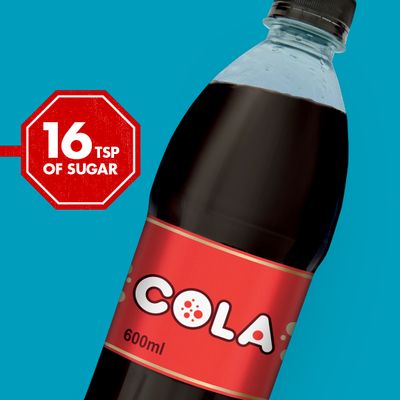
Energy drinks
Highly sweet, highly caffeinated and highly marketed. Energy drinks pack around 7 teaspoons of sugar into one of those little cans. And enough caffeine to make drinking lots of these a concern – especially for young people, who are some of the biggest consumers. Mixing these with alcohol is common, and potentially dangerous. The stimulant effect of the caffeine can mask the effect of the alcohol and increase risk-taking behaviour. Be careful out there.
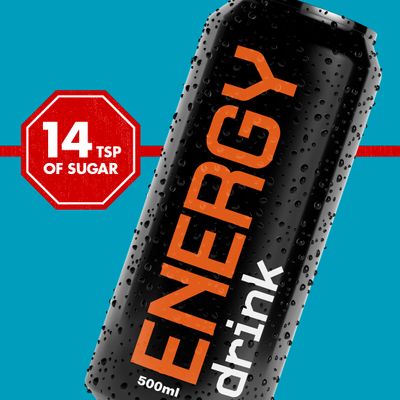
Sports drinks
Have you noticed the funny mouthpieces on footy players’ drink bottles? They’re so athletes can minimise the contact that sports drinks have with their teeth. Sports drinks are high sugar (around nine teaspoons per bottle) and pretty unnecessary for most people. A 45-minute exercise class, a hangover and a kid’s basketball game are all activities that DON’T require a sports drink. Leave it to the elite athletes and hydrate with water instead.
Note: if you’re doing more than 90 minutes of vigorous exercise or are losing a lot of fluid through vomiting, diarrhoea or heavy sweating a sports drink or electrolyte replacement drink might be helpful.
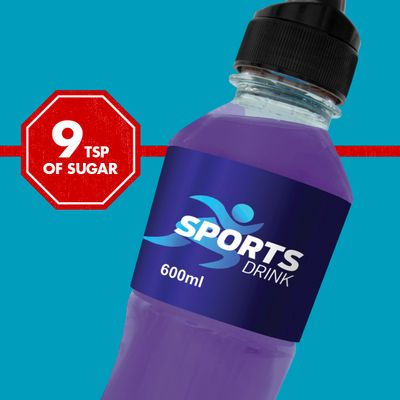
Juice, fruit drinks and smoothies
Whole fruit is a great snack choice. Yes, there’s sugar in fruit, but it’s bundled up with fibre, vitamins and antioxidants. So what happens when you juice a fruit? You squeeze all the sugar into a glass and throw away the fibre- that’s the best bit!
Many “fruit drinks" contain very little actual fruit juice (and therefore vitamins and antioxidants) and often contain added sugar. These go in the same category as soft drinks.
Haven’t smoothies made a huge comeback in the last couple of years! Smoothies use the whole fruit or vegetable (fibre, pulp and all) so they are usually a better choice than juices and can be a good way to include fruit and veg in your diet if you’re struggling to fit it in. Smoothies made with whole fruit and veg and plain milk (or milk alternatives) and no added sweetener (like sugar, honey, maple syrup, rice bran syrup etc) are your best bet. Keep an eye on the size though, as liquid kilojoules don’t fill us up as much as food.
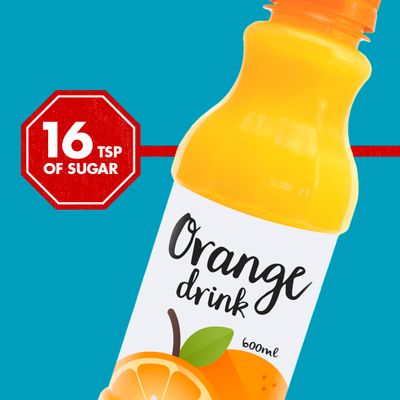
Flavoured milk
If you read the nutrition panel on your average choc milk, you might be stunned to find that a 600 mL drink contains around 60 g of sugar- that’s 13 teaspoons. The thing to remember is that in Australia we don’t distinguish between naturally occurring sugar in foods and added sugar in nutrition panels. Milk naturally contains lactose, which is a type of sugar. It gets included in the nutrition panels as “sugar” but gets processed differently by your body than table sugar.
600 mL of plain low-fat milk has about 36 g (or 8 teaspoons) of lactose in it. That means that a large choc milk has around 5 teaspoons of added sugar. That’s not great, but it’s not as disastrous as 13 teaspoons! Milk also has a lot of nutritional benefits- it’s a good source of calcium and protein, which helps you feel full.
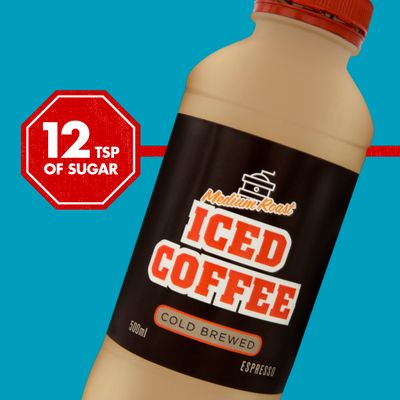
Coconut water
Coconut water has a great PR team! Be careful – there are a lot of health claims made about coconut water that are not supported by scientific evidence. Straight coconut water has about half the sugar of a soft drink, but unfortunately it won’t boost your immune system, heal your gut or improve your sex life.
Many packaged coconut waters have added sugar – so be sure to check the ingredients list. It might be listed in the ingredients list as regular ol’ sugar, or something else, like fruit juice concentrate, rice bran syrup, glucose, malt extract or many more.
The verdict
Drink water. Eat fruit and vegetables. Check the label to make sure you’re getting what you think you’re getting. Don’t fall for the marketing hype.
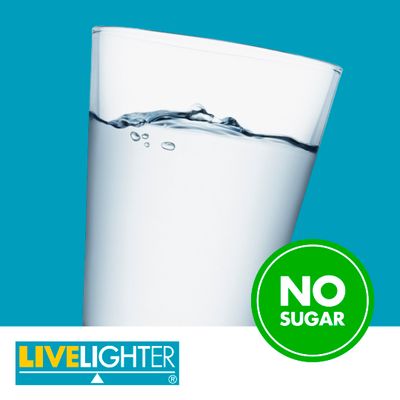
How much sugar do you consume via sugary drinks? Find out via our sugary drinks calculator.

